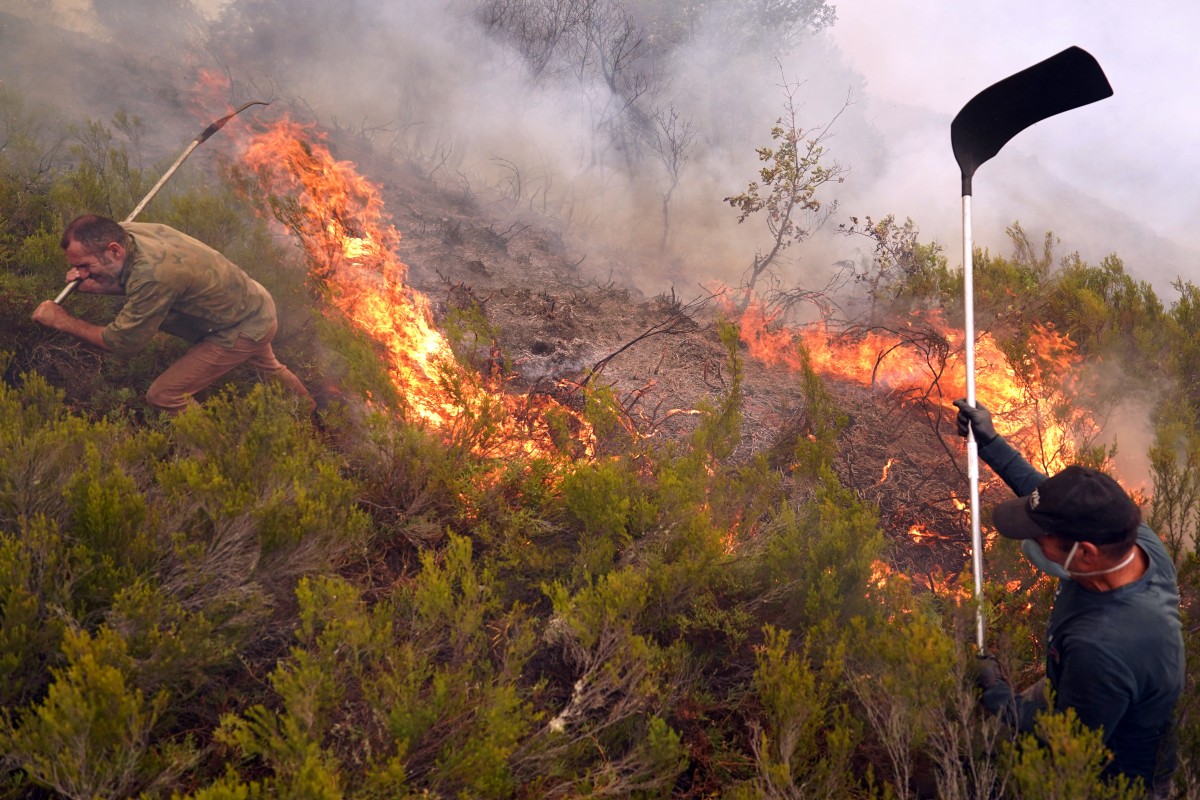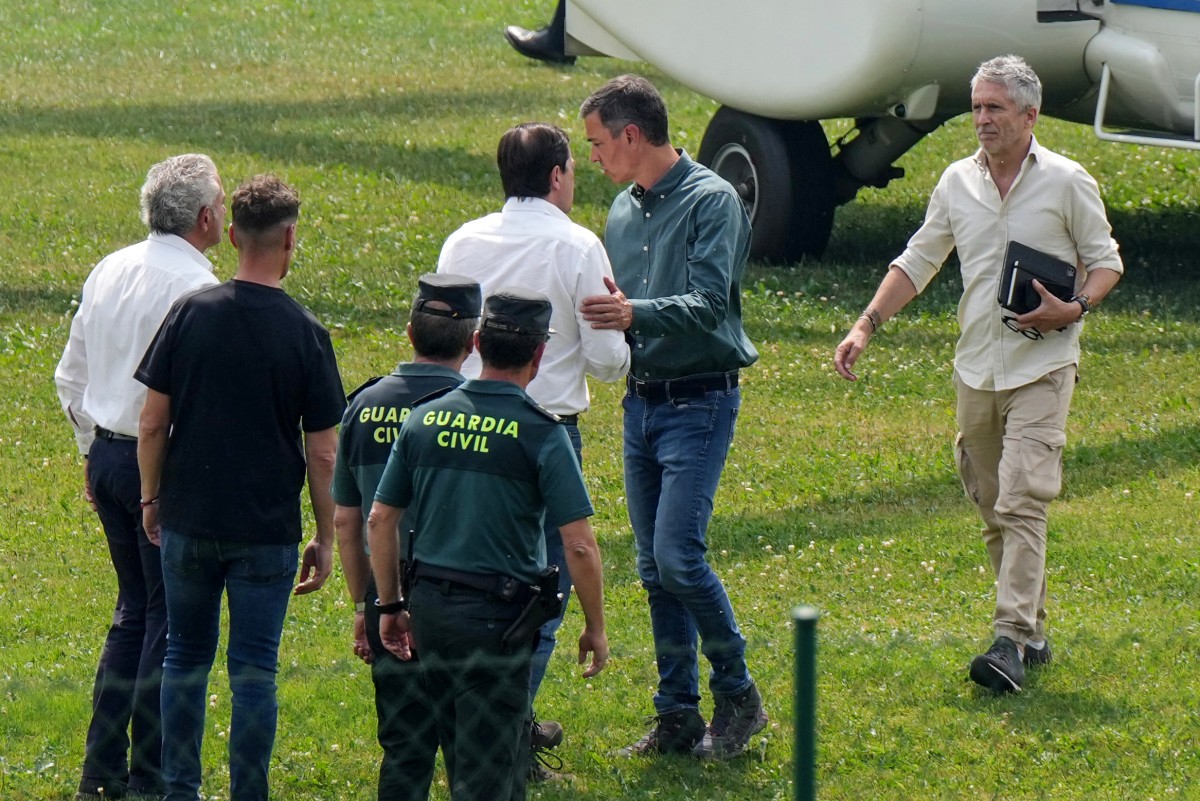How Spain's deadly wildfires have ignited a political blame game

As helicopters dump water over burning ridges and smoke billows across the mountains of northern Spain, residents from wildfire-stricken areas say they feel abandoned by the politicians meant to protect them.
A blaze "swept through those mountains, across those fresh, green valleys and they didn't stop it?" said José Fernández, 85.
He was speaking from an emergency shelter in Benavente where he took refuge after fleeing his nearby village, Vigo de Sanabria.
While praising the care he received at the shelter, run by the Red Cross, he gave the authorities "a zero" for their handling of the disaster.
Blazes that swept across Spain this month have killed four people and ravaged over 350,000 hectares (865,000 acres) over two weeks, according to the European Forest Fire Information System (EFFIS).
MAPS: How to check for active wildfires in Spain
Three of those deaths were in the region of Castilla y León, where Vigo de Sanabria is located, as well as a large part of the land consumed by the fires.
And as happened after last year's deadly floods in the eastern region of Valencia, the fires have fuelled accusations that politicians mishandled the crisis.
"They committed a huge negligence," said 65-year-old José Puente, forced to flee his home in the village of San Ciprián de Sanabria.
The authorities were "a bit careless, a bit arrogant", and underestimated how quickly the fire could shift, he added. He, too, had taken refuge at the Benavente shelter.
"They thought it was solved, and suddenly it turned into hell," said Puente.

'Left in God's hands'
Both men are from villages in the Sanabria lake area, a popular summer destination known for its greenery and traditional stone houses, now marred by scorched vegetation from wildfires.
Spain's decentralised system leaves regional governments in charge of disaster response, though they can ask the central government for help.
The regions hit hard by the wildfires -- Castilla y León, Extremadura, and Galicia -- are all governed by the conservative Popular Party (PP), which also ruled Valencia.
READ ALSO: 6 reasons why Spain's wildfires are so bad this year
The PP, Spain's main opposition party, accuses Socialist Prime Minister Pedro Sánchez of having withheld aid to damage conservative-run regions.
The government has hit back, accusing the PP of having underfunded public services needed face such emergencies. They argue that these regions refused to take the climate change which fuelled the wildfires seriously.
The wildfires have also thrown a spotlight on long-term trends that have left the countryside vulnerable.
Castile and Leon suffers from decades of rural depopulation, an ageing population -- and the decline of farming and livestock grazing, both of which once help keep forests clear of tinder.
Spending on fire prevention -- by the state and the regions -- has dropped by half since 2009, according to study by daily newspaper ABC, with the steepest reductions in the regions hit hardest by the flames this year.
"Everything has been left in God's hands," said Fernández, expressing a widely held view by locals hit by the fires.

'Life and death'
Spain's environmental prosecutor has ordered officials to check whether municipalities affected by wildfires complied with their legal obligation to adopt prevention plans.
In both Castilla y León and Galicia, protesters -- some holding signs reading "Never Again" and "More prevention" -- have taken to the streets in recent days calling for stronger action from local officials.
The head of the regional government of Castilla y León, the Popular Party's Alfonso Fernandez Mañueco, has come under the most scrutiny.
Under his watch in 2022, the region suffered devastating wildfires in Sierra de la Culebra that ravaged over 65,000 hectares.
He has defended the response this year, citing "exceptional" conditions, including an intense heatwave. He has denied reports that inexperienced, last-minute hires were sent to fight the fires.
Jorge de Dios, spokesman for the region's union for environmental agents APAMCYL who has been on the front line fighting the fires in recent days, criticised working conditions.
Most of the region's firefighting force "only works four months a year", during the summer, he told AFP.
Many are students or seasonal workers who participate in "two, three, four campaigns" before leaving.
"We are never going to have veterans," he said, adding that what was needed were experienced firefighters capable of handling "situations that are clearly life or death".
Please, login for more
thelocal





